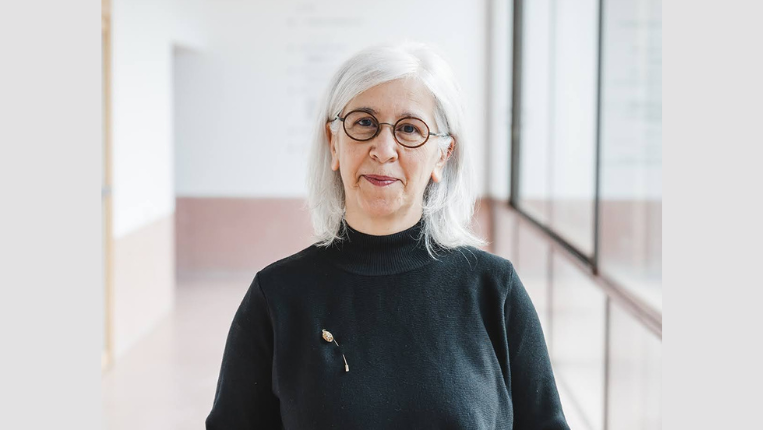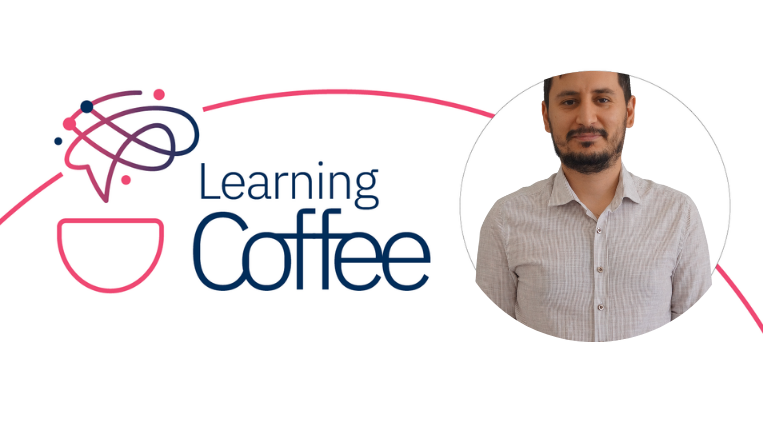
Catarina Ribeiro is a professor at the Faculty of Education and Psychology, a Clinical/Health Psychologist, and an Expert in Forensic Psychological Assessment. She has dedicated her career to the areas of Clinical Psychology, Justice, and Deviant Behavior. Why Psychology? The answer lies in “people”: “I have an enormous curiosity about the human being.” In this interview, she discusses the challenges of her profession, the importance of empathy and tolerance, and explains why rest is crucial.
You are a specialist in Justice and Deviant Behavior. What characterizes this field of Psychology?
The Psychology of Justice and Deviant Behavior is an applied field of Psychology in a very specific context: understanding and interpreting deviant behavior and its relationship with the law. It is a fascinating area because it requires a solid understanding of psychology to contribute to fairer legal decisions. Law regulates behavior through legislation. Psychology helps the Law understand behavior. It is not about justifying, but about helping the justice system to better understand people’s motivations, dynamics, and limitations, so that more informed judgments can be made. For example, if someone commits a crime but has a psychopathology that prevents them from understanding their actions, the judgment cannot be the same as for someone who acts with full awareness. Psychology plays an essential role in bringing a scientific framework to human behavior.
You are an Expert in Forensic Assessment. What does this role involve?
I am a Forensic Expert at the National Institute of Legal Medicine and Forensic Sciences, where these assessments take place. Forensic assessment bridges Clinical Psychology and Legal Psychology. Psychological assessments are an important means of evidence in the legal system. People are assessed depending on the type of case in which they are involved. It could be someone who committed a crime, a victim, a child involved in custody proceedings, or in child protection cases, for example. We often assess family dynamics, manipulation, attachment to parents, parenting skills, which are especially important in cases of neglect and abuse, high parental conflict, among many other situations. We also evaluate the impact of accidents, neuropsychological damage, and its implications on people’s lives. All of this is part of the forensic work I do. It is a very varied job because, although there are behavioral patterns, each person has unique characteristics, and the context in which everything happens is also different.
You also work in clinical practice…
Yes. I have always had two main interests: forensic assessment and clinical practice. I especially enjoy intervening in situations of high adversity and life transitions that are experienced with suffering. I am referring to states of depression, anxiety, anguish, difficulties in adaptation, and grief.
Given so many difficult situations you deal with daily, how do you maintain a balance between professional and personal life? How do you avoid carrying the weight of all these with you?
Yes, I have a profession with a heavy emotional load. I work with many people, usually in emotionally complex situations. I deal with this with empathy, never with indifference. Psychologists should not become desensitized to human suffering. They must, however, know how to distance themselves and differentiate between contexts. The tools we develop, the scientific knowledge, and the training we acquire help us to look at situations from a clinical perspective, not just a personal one. Skills such as listening, communication, empathy, and the ability to transmit safely are essential.
How do you deal with frustration?
I have a profession that demands great ability to cope with frustration, because changing behavior is difficult, and we cannot always transform people’s lives to make them more functional. I have been in psychotherapy for many years; that is, I have my own psychotherapeutic space, and I have a supervision group where I share technical doubts and personal issues. This is fundamental in this field: to keep studying and to have continuous supervision. It is essential not to work alone, not to absorb everything alone. And, of course, I look for fulfilling personal contexts that help me relieve some of the emotional weight from the people and stories I encounter professionally.
In Psychology, are there hopeless cases, or does every situation have at least some room for improvement, however small?
There are situations with great resistance to change. It is important to recognize that. Examples include cases of severe psychopathology, severe personality disorders, and antisocial behaviors, among others. However, there is always some margin, even if only to reduce harm. Not everyone has the potential for major change; it is essential to understand the degree of flexibility and adjust expectations.
You have been a professor at the Faculty of Education and Psychology at Universidade Católica since 2007. What challenges has the new generation of students brought you?
The biggest challenge today is dealing with students’ low tolerance for frustration and high anxiety levels. There is a huge need for immediate gratification.
How do you teach empathy to students?
It is not easy… Empathy is strongly linked to personality structure, individual meanings, each person’s life story, and the way their emotional states are received. There is affective empathy – “I feel what the other is feeling” – and cognitive empathy – “I understand what the other is feeling.” Cognitive empathy is easier to work with, through exposure to situations, practical examples, stimulating personal reflection, and asking people to put themselves in others’ shoes. Even in classroom interactions, between colleagues, I use examples to awaken empathic awareness.
And in the case of tolerance, how do you promote a true ability to deal with differences?
Tolerance requires, above all, recognition of freedom. Only in free societies does tolerance exist. And it is important to distinguish between tolerance and permissiveness. Some behaviors cannot be tolerated because they violate fundamental rights. Within what is acceptable, we need flexibility to deal with differences, to adjust ourselves and others. This requires managing relationships without destroying ourselves or harming others. Tolerance exists only because there are limits. That is the basis of healthy coexistence among people.
How do you view artificial intelligence?
Artificial intelligence has brought new challenges. I don’t demonize it; we are trying to integrate it, but it changes the way we teach and evaluate. It therefore requires adaptation. But my mission as a professor remains the same, despite the new challenges that arise. My greatest effort is to spark curiosity so that students want to learn more than what will be assessed, to know how to use AI as an ally for their development.
What led you to Psychology was people. Are people still what keeps you fascinated by this field?
Absolutely. I have enormous curiosity about human beings. Even if sometimes it brings unpleasant surprises, I am willing to take that risk. Curiosity has that unpredictable side. When we are curious, we are willing to discover any reality, even if it is difficult. I have the professional life I want. I work at a university where I feel fulfilled, I really enjoy teaching, studying, and I have my clinical and forensic practice. My career is built on these three areas, which I am very passionate about, and they complement each other.
What do you enjoy doing in your free time?
I go to concerts whenever I can, I love reading, being with my dog, taking naps, and spending time with friends and family. I really need to be in contact with nature; I love hiking. They are very simple things, but they do me good. I also really need time alone… silence is important.
In a world with increasing stimuli, what is the importance of truly free time?
It is absolutely essential, because rest is crucial, even to be able to help others. It is increasingly difficult for us to rest. We struggle to do nothing, but it is so important. It is essential to be without stimuli around us, because it is in that time that we give space to boredom, to emptiness – and it is often from boredom that creativity emerges, that we find opportunities to connect with ourselves, with our failures and limitations, but also with new discoveries.
Is that why silence is so important?
Yes, silence always means something. There must be room for silence. For example, silence is very important in psychotherapy. Because after silence, something always comes. We must know how to be silent, respect silence, and understand its meaning.
Pessoas em Destaque é uma rubrica de entrevistas da Universidade Católica Portuguesa, Centro Regional do Porto.



